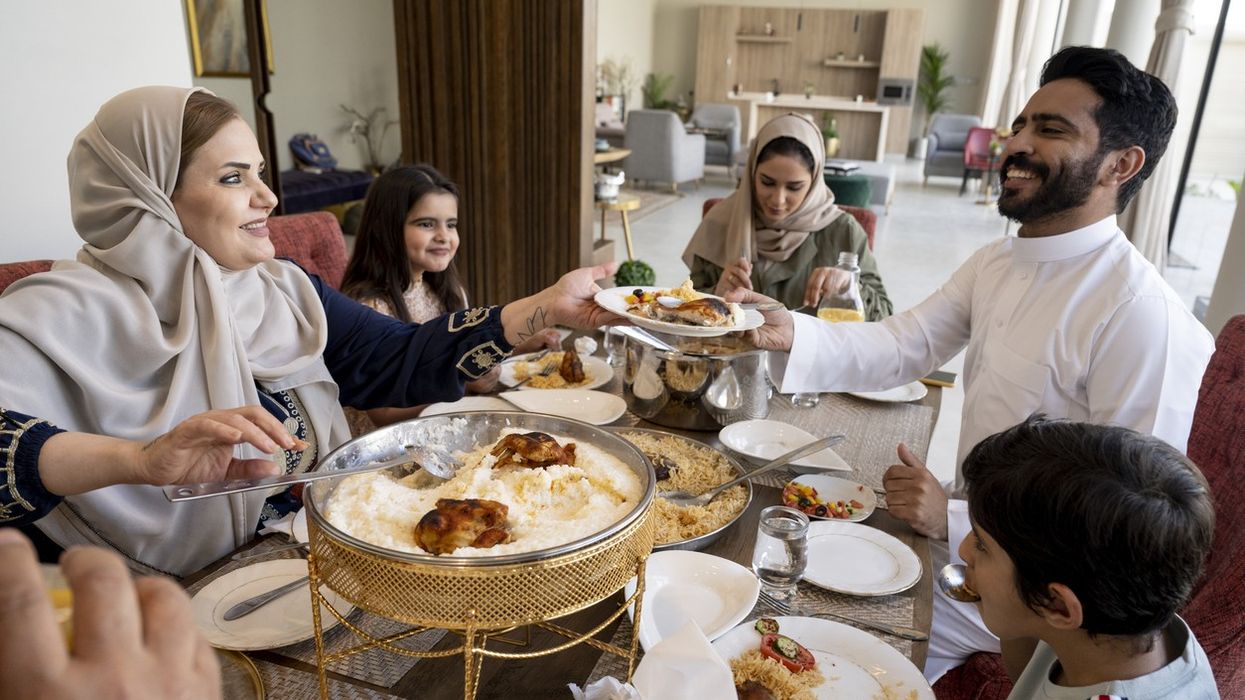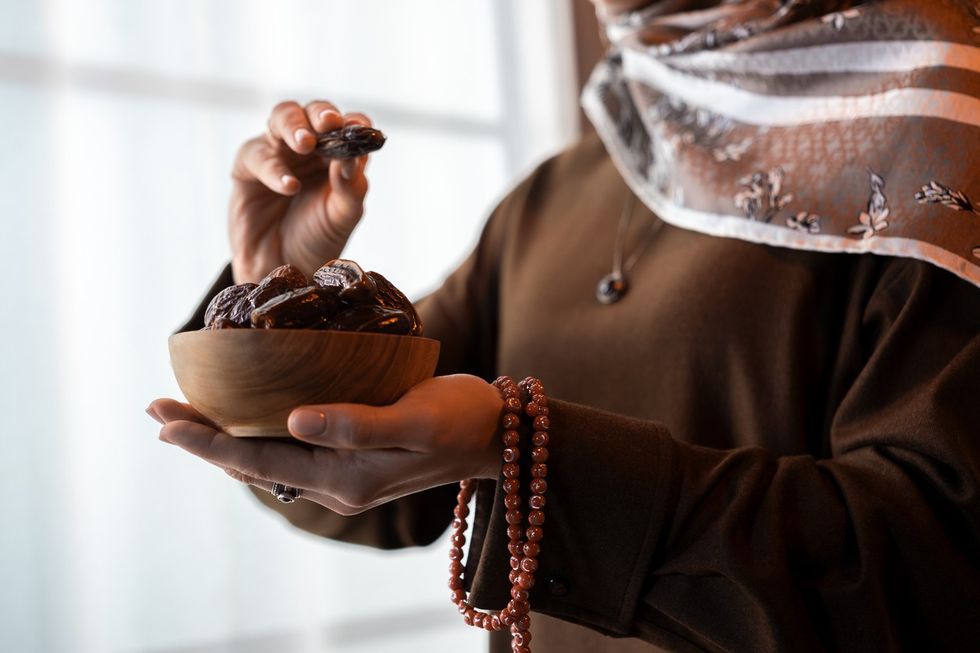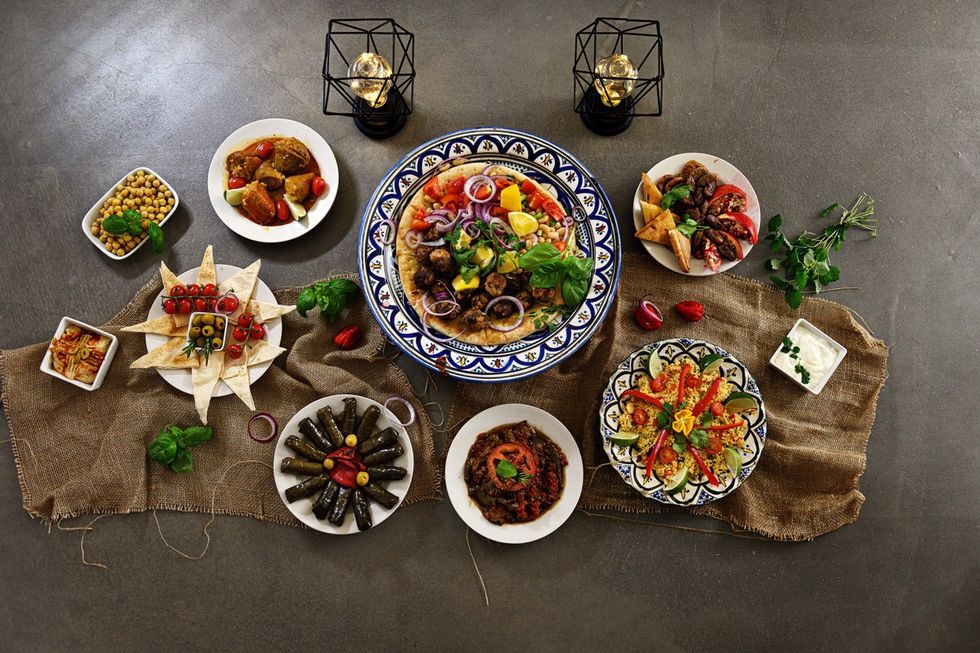RESHMA RUIA ON INSPIRATIONS, EXPERIENCES AND EMOTIONS THAT HELPED COLOUR HER NEW BOOK
by MITA MISTRY
ACCLAIMED names from the literary world, including Lemn Sissay MBE, Todd Swift and Rishi Dastidar have praised A Dinner Party In The Home Counties by Reshma Ruia.
The poetry collection has introduced a confident new voice, using simple language to explore complex emotions and portray vivid pictures readers can relate to. She formed a close connection to creativity as a child, which subsequently led her towards winning poetry prizes and then organically creating her new book. She is part of an exciting new wave catering for an increased appetite for poetry and reads her work regularly at Spoken Word nights.
Eastern Eye caught up with Ruia to discuss poetry, inspirations and her new book.
Tell us about the book?
These poems are about people travelling between worlds – geographical, cultural and emotional. There are poems about letting go of old certainties, hope and betrayal and loss too. The poems are personal in tone, but will, I hope, resonate universally through their exploration of grief, loss, love and age. The poems are relevant to our times when there’s a growing sense of parochialism and hostility towards ‘the outsider.
Tell us more…
They will resonate with all those who have portable roots and are at home everywhere and nowhere. They also portray the emotive minefield of relationships, questioning the ambiguity behind maternal or filial love. Society conditions us to love our parent, child or partner, but my poems challenge this by describing the tug of war between a woman’s sense of self and the roles she is expected to play.
What was the biggest challenge of writing this book?
I write novels, short stories and poetry, and to switch genres can be a challenge. Whereas plot and character development is critical in prose, poetry relies more on the use of language, rhythm and sound. Time is also a hurdle.
How much of the book was based on personal experiences?
The poems reflect my own hybrid identity, which straddles India, Italy and Britain. There is a mosaic of memories and experiences. I have dedicated the book to my father. I lost him last summer and some of the latter poems in the collection echo with his absence.
What’s the secret to writing good poetry?
Poetry in its purest form belongs to an oral tradition, therefore a poet needs to be aware of the sound of words, their cadence, beat and tempo. Poetry doesn’t need to be clever, obtuse or use technical pyrotechnics to impress the reader. A poem should tell a story, communicate a feeling, resonate and strike a chord with the reader, and enable them to gain a fresh perspective on the mundane. Moreover, the secret to any good writing is re-writing. Multiple drafts are needed to hone your craft and good readers make good writers. Read widely and eclectically.
Why do you think poetry has enjoyed such a resurgence in recent years?
Poetry is definitely enjoying a revival. The rise of social media and Instagram stars such as Rupa Kaur has attracted fresh, young audiences to the genre. There has been a growth of performance poetry and open mic nights in pubs and cafes. I regularly read my work on Spoken Word nights. There is a huge appetite for poems that reflect these conflicting times and express what it means to be human. Also, people generally have shorter concentration spans and are pressed for time. Poetry is direct, straightforward and can distil the essence of reality in carefully chosen words that linger on.
Who is your own hero of poetry?
I am drawn to poets who have a conscience, talk about the world around them and are not afraid of exposing their own flaws or frailties. My earliest memory of poetry can be traced to Bengali great Rabindranath Tagore, who was fiercely political and romantic at the same time. Pablo Neruda, the Chilean poet, is another hero. He has an uncanny ability to use words in such a way that we are aware of the passion, flesh and blood immediacy of emotion. My favourite collection is his 21 Love Poems. I admire Sylvia Plath for her
urgency, vision and understanding of the female psyche.
What inspires you?
Writers are like magpies, shamelessly observing and collecting ideas and inspiration. I am inspired by not just the beauty of existence, but also the flawed imperfection of humanity. There is a Japanese term in pottery called Kintsugi, where breaks and repairs are treated as part of the object’s history. The repairs are visible, yet somehow beautiful. I want to reflect and write about the flaws and damage.
What can we expect next from you?
I have a collection of about 20 short stories I am keen to bring together in a collection. I am also the co-founder of The Whole Kahani, a writers’ collective of British South Asian writers and we are preparing our next anthology of short stories.
Why do you love poetry?
I love poetry for its use of language. The humble alphabet that we use in our daily lives is transformed into something entirely new, soul-satisfying and pleasurable, as well as wise. Poetry will outlast us all. It’s the oldest form of expression that defines us as sentient humans and ennobles us.
A Dinner Party In The Home Counties is out now on Skylark Publications.
www.skylarkpublications.co.uk





 Big Bear Lake, CaliforniaiStock
Big Bear Lake, CaliforniaiStock Las Vegas strip in Nevadaistock
Las Vegas strip in Nevadaistock Skyline, TampaiStock
Skyline, TampaiStock Mayan ruins of Altun HaiStock
Mayan ruins of Altun HaiStock Cancun beachiStock
Cancun beachiStock Old San Juan’s cobblestone streetsiStock
Old San Juan’s cobblestone streetsiStock Old Port of Montreal iStock
Old Port of Montreal iStock











 Stricter regulations will be put in place to safeguard young consumersiStock
Stricter regulations will be put in place to safeguard young consumersiStock




